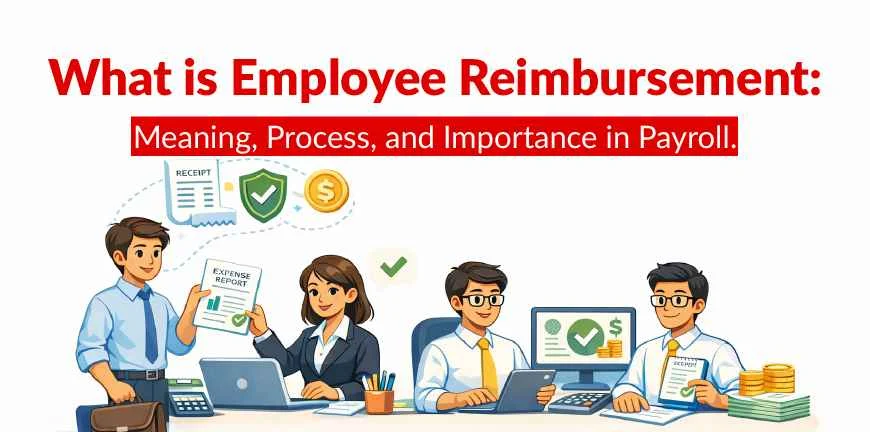
Difference Between Company Payroll and Third-party Payroll
10/07/2023
What is Apprenticeship Training?
19/07/2023Salary day is the single most important day in any given month for an employee, a time when they can go and splurge the money on conveniences and feel free. Employees look forward to their salaries with bated breath every month, and employers want to fix this. The solution: outsourcing the payroll to a third party.
What is Payroll?
A Payroll is the list of all employees in the company maintained for the purpose of crediting their salaries, which includes any compensation or benefits due to them, including insurance. It could also refer to the total amount that the company must pay its employees. Payroll management is one of the most crucial responsibilities of an organisation. Payroll is often confused with salary. Salary is the amount that is paid to each employee for the work that they have done, and payroll is the system that manages this salary credit and the tax deductions at the source, also considering the compliance requirements too.
What is Third Party Payroll Services?
Using an external organization to handle payroll administration and compliance is referred to as third party payroll. This is more effective for organizations who want to devote more time to strategizing and planning their HR activities. This way recruitment teams get more time to create better job posts and for social media listening and analytics, for instance. This can prove to be a game-changer for organizations, moving them into the league of big players.
What are the 11 Reasons of Hiring Third-party Payroll?
Let us now look at some of the benefits of third-party payroll. It starts with simple cost cutting and moves to better business development and ends with better customer service for your employees.
1. Cost-cutting:
A third-party payroll services allows organisations to cut back on resources and the infrastructure necessary to enable the administrative and compliance functions of payroll. Since the employees are not hired on the company payroll, they need not be paid as much as their regular employees. They also need not be providing vehicle allowance and other benefits, which leads to additional costs for the company.
2. Saves so much time:
The process of payroll management is a long and tedious one, especially if it is done manually and if the person or people managing it need to be updated with changes to legislation. When you outsource to a third party, it saves so much time for the organisation as they will be familiar with ways to automate the repetitions and find ways to streamline the process itself.
3. Better business development:
When the payroll is outsourced to a third party, and the costs are reduced, the business can devote more resources for business development, which has a direct impact on the company’s ROI.
4. Greater access to recent technology:
Technology may not be easily accessible to everyone, because of the prohibitive costs of setting up and monitoring it. When you outsource payroll to a third party, then the onus of using the most up-to-date technology falls on them, which they can fulfil too.
5. HR team members are free to be creative and strategic:
The HR team has more time to get creative with job descriptions, read them again for clarity and even plan the entire recruitment process better.
6. A higher level of adherence to state and central laws:
Third party payroll will know how to handle payroll administration and compliance without deviating from established laws. Income tax slabs and other compliance laws are change by the government from time to time. If the third party is aware of these laws, as most are then it allows the company to navigate the legal landscape with ease and prevents lawsuits.
7. Expertise in the field:
Third party payroll service providers have great expertise in the field as they have been managing payroll services for so many years. They can also decide which parts of the payroll must be automated as they have a better idea of this. In this way, they can manage payroll administration and compliance a lot better than an in-house team.
8. Protection of Personal Information:
Third party payroll service providers take great care of employee data. They secure it with industry-grade encryption. This ensures that there is no theft or loss of data at any time.
9. Knowledge of the process and industry experience:
Third party payroll providers have a lot of industry experience, and they understand that the payroll handling varies from industry to industry as some may provide certain allowances while others may not.
10. Customer Service for Your Company and Your Employees:
Handing over your payroll administration and compliance to a third party ensures that the customer service experience is great. This also means that you need not spend time trying to resolve queries that your employees may have. It will be handled by a third party.
11. Might have other responsibilities too:
A third-party payroll service provider may also undertake a few HR activities also, such as recruitment and staffing, thereby reducing the pressure on the organization to manage all these.
6 Key Responsibilities of the Third-party Payroll Agency
1. A third-party payroll agency is well paid to look after the payroll of the company availing the service. And there are several key responsibilities that it takes on. A third-party payroll agency manages all aspects of attendance, tax deduction, report generation and other activities associated with payroll. Let us look at these in more detail.
2. Integrate timesheets into payable salaries and account for tax: The timesheets are aggregated for each employee and the salaries payable are calculated based on that. The total tax liability is also accounted for.
3. Generate reports on how the payroll is being managed: The third-party payroll agency also generates reports, using special software, on attendance, leave balance, upcoming holidays, and salary paid to each employee etc. This can then be presented to stakeholders to garner valuable insights.
4. Manage tax deducted at source, tax filings, and deductions: Manage how much total tax is deducted at the source, decide when the tax filings must be made, and calculate other deductions.
5. Manage any payment discrepancies: Understand why there are payment discrepancies and manage missed payments, overtime due etc. as per the HR rules of the company and the guidelines from the government.
6. Manage any wage alterations or ad hoc requirements: Does the organisation need any changes made to the wages? Is the organization implementing a new pay structure?
Is Third-party Payroll Good or Bad?
Third party payroll is highly beneficial for your company for all the reasons mentioned in this article. But whether it is good or bad comes down to your need. If you do not need a third-party payroll, it might not be necessary. Bit third party payroll is a game-changer for bigger companies, boosting their ROI, employee satisfaction and their brand reputation.
Who Hires Third-party Payroll?
Third party payroll services can be hired by any company that is worried about employee engagement and satisfaction levels. Teams that are short-staffed or which do not have resources adept at managing payroll can also outsource payroll to a third party.
Closing words
A timely salary credit can make a world of difference to your employee satisfaction. Your employees will spread the word and your organisation will find glowing reviews online, and offline by word of mouth. To achieve this with ease and accuracy, you need a third-party payroll service provider. Talk to Alp Consulting. We have not only been managing payroll but every aspect of HR since 1996 and are champions of this realm.
FAQs
1. What should one do if they get a call about hiring from a big company through a third-party payroll service provider?
To begin with, congratulations, you have a chance to get a job! If you get such a call, then you must consider the pros and cons of such an undertaking. If you are a fresher and looking for experience, this may be the perfect offer for you. If you are a manager, analyse whether you are okay with the pay that has been promised and if the brand name of the larger organization would compensate adequately for the slightly lower pay.
2. Why are companies increasingly opting for third party payroll services?
Companies have realised the benefits of third-party payroll service providers. These payroll service providers help reduce the costs and provide access to technology that will not only help automate certain tasks but streamline the entire payroll process, making it easy to administer.
3. Who should opt for third party payroll service?
Employers who can’t manage their businesses, need more time to focus on their teams and interactions within and between them and those who are currently unable to pay their employees on time due to delay in payroll processing are some of the businesses that must opt for a third-party payroll service provider.
4. Which industries are best suited for a third-party payroll?
The following industries are most suited for a third-party payroll service: IT Companies (both software and hardware), BFSI companies, non-IT companies (pharma, retail, and construction) and the BPO sector (voice and non-voice customer care).
5. How old is the oldest recorded payroll system?
The oldest recorded salary is from the neolithic period of 10000 – 6000 B.C. In Mesopotamia, there is a record of rations given to workers as early as 2500 B.C. and by 5th Century, the Greeks had a system of maintaining their business books. But it was not until 1799, with the introduction of income tax in the U.K., that the modern system of payroll came into being.
Contact Us For Business Enquiry

Yugandhara V. M
Yugandhara V. M serves as the Assistant Vice President – HRO at Alp Consulting Ltd., bringing over 14 years of rich experience in Human Resource Outsourcing, payroll management, and statutory compliance. He specializes in driving process excellence across HR operations, ensuring seamless service delivery and compliance with labor laws. Yugandhara’s expertise lies in managing large-scale client engagements, optimizing HR processes, and implementing efficient workforce management systems that enhance organizational performance. He also leads comprehensive payroll services, ensuring accuracy, timeliness, and compliance for diverse client portfolios.




